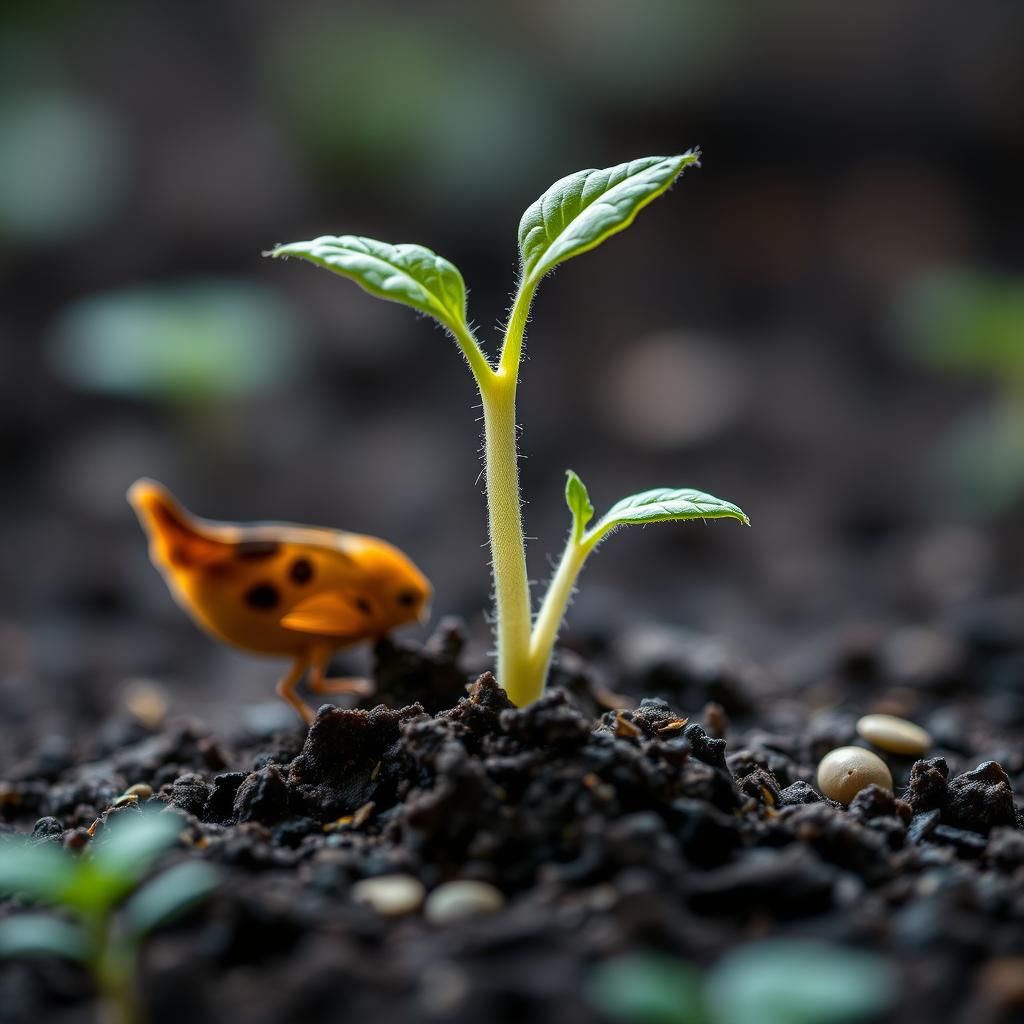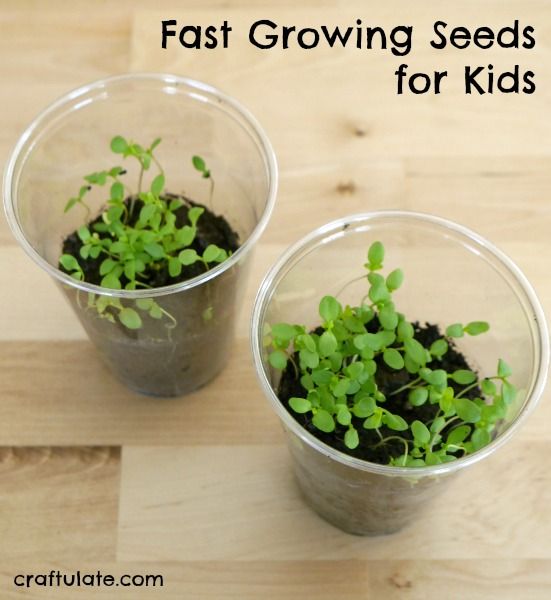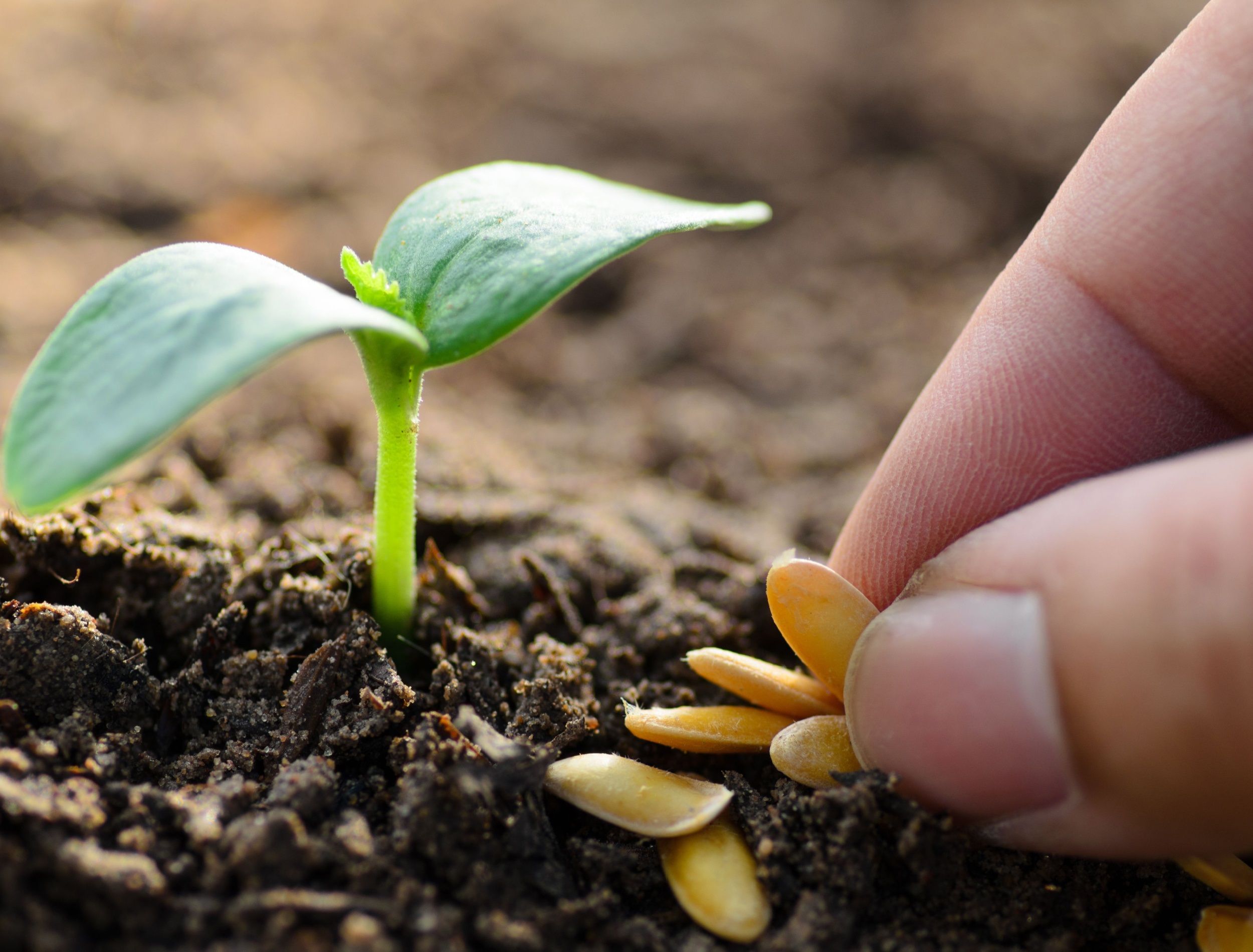Discover What Seeds Germinate in 2 Days? - Fast Growing Seeds for Quick Results

When it comes to gardening, patience is often a virtue, but what if you could witness the magic of nature unfold in just two days? Fast-growing seeds offer an exhilarating solution for those eager to see results without the long wait. Whether you're a seasoned gardener or a novice, understanding which seeds germinate quickly can help you make the most of your garden space and time. In this article, we will explore a selection of seeds that sprout within 48 hours, along with tips for successful germination. Get ready to embark on a journey of rapid growth and vibrant greenery!
What Seeds Germinate within 2 Days?
Many gardeners often seek to find seeds that have a rapid germination rate, especially for those looking to achieve quick results. Seeds that can germinate in as little as two days are typically small and responsive to optimal moisture and temperature conditions. Common options include radishes, which show remarkable speed due to their small size and thin seed coat, allowing them to absorb water quickly. Other fast-germinating seeds include arugula, basil, and mustard greens. With the right conditions, these seeds can sprout rapidly, making them ideal for gardeners looking for a quick yield or individuals interested in cultivating their own home gardens for culinary use.
Fast Germination: Radishes
Radishes are among the quickest seeds to germinate, often sprouting within 24 to 48 hours under ideal conditions. They thrive in well-drained soil and require consistent moisture to encourage rapid water absorption. With various varieties like Cherry Belle and French Breakfast, radishes offer not only fast results but also a range of flavors for culinary applications.
Quick Sprouts: Arugula
Arugula, a leafy green known for its peppery flavor, typically germinates within 2 days when provided with the right environmental factors, such as warmth and moisture. A great choice for salads and garnishes, arugula should be planted in well-prepared soil with adequate sunlight, allowing for a quick harvest.
Basil: A Speedy Herb
Basil, a popular herb in many dishes, can germinate impressively fast. Under optimal conditions, typically a temperature of 70°F to 85°F (21°C to 29°C), it can start sprouting within 2 days. This remarkable speed makes it an attractive choice for gardeners who want to quickly grow fresh herbs for cooking.
Mustard Greens for Quick Harvest
Mustard greens are another excellent option for quick germination, often sprouting in about 2 days. These nutrient-rich leafy vegetables prefer cooler weather but need consistent moisture to facilitate their rapid growth. Mustard greens can be harvested in as little as three weeks, making them a favorite among gardeners seeking quick yields.
Environmental Factors Impacting Germination
A crucial factor in ensuring seeds germinate quickly within 2 days is meeting their specific environmental requirements, including temperature and moisture levels. Most fast-germinating seeds thrive in temperatures between 65°F and 75°F. Keeping the soil consistently moist but not soggy will help seeds to absorb water quickly, leading to faster germination rates.
| Seed Type | Germination Time | Optimal Conditions |
|---|---|---|
| Radishes | 1-2 days | Moist soil, warm temperature |
| Arugula | 2 days | Moist, well-drained soil |
| Basil | 2 days | Warm temperatures, moist soil |
| Mustard Greens | 2 days | Consistent moisture, cooler temperatures |
What is the fastest seed to germinate?

The fastest seed to germinate is typically that of the radish. Under optimal conditions, radish seeds can sprout within 3 to 5 days. This rapid germination is a result of their small size and the way they respond to moisture and temperature.
Factors Affecting Germination Rate
The rate of seed germination can be influenced by several key factors:
- Moisture: Seeds need water to germinate, as it activates enzymes that digest stored food.
- Temperature: Each plant species has a temperature range optimal for germination, generally between 65°F to 75°F (18°C to 24°C).
- Soil Quality: Nutrient-rich, well-drained soil fosters quicker germination as it provides essential minerals.
Other Fast-Germinating Seeds
While radishes are among the fastest, several other seeds germinate quickly as well:
- Beans: Common bean seeds can germinate in about 5 to 10 days and thrive in warm conditions.
- Cress: Garden cress germinates in approximately 5 days, making it popular for quick microgreens.
- Mustard: Mustard seeds can sprout within 3 to 7 days, often used in garden mixes due to speed.
How to Optimize Germination Conditions
To encourage the fastest seed germination, you can follow specific practices:
- Pre-soaking Seeds: Soaking seeds in water for a few hours before planting can speed up the process.
- Using Seedling Trays: Starting seeds indoors in trays can offer controlled conditions for faster growth.
- Maintaining Humidity: Covering seeds with a plastic wrap or lid can help maintain moisture levels.
Importance of Fast Germination
Fast germination is vital for various reasons:
See also:
- Shorter Growing Seasons: In regions with shorter growing periods, fast-germinating seeds can ensure successful harvests.
- Quick Crop Rotation: Farmers can rotate crops more effectively, improving soil health and productivity.
- Immediate Food Supply: Fast-growing plants can provide food quickly in emergency situations or during shortages.
Conclusion on Fast Germination
Knowing the fastest germinating seeds allows gardeners and farmers to make informed choices based on their specific needs. Understanding the germination process can lead to successful cultivation and robust plant growth.
Which seed grows faster in 3 days?

The seed that typically grows the fastest within three days is the radish seed (Raphanus sativus). Under optimal growing conditions, radish seeds can germinate and show visible growth in as little as 3 to 5 days. Factors such as temperature, moisture, and soil quality play crucial roles in this rapid germination process.
Factors Influencing Seed Germination
Seed germination is influenced by various environmental factors. Understanding these factors can help optimize the growth process for faster results.
- Temperature: Most seeds germinate best within a certain temperature range, typically between 65°F (18°C) and 75°F (24°C).
- Moisture: Adequate moisture is essential for seed activation; however, too much water can lead to seed rot.
- Oxygen: Seeds require oxygen for respiration; compacted soil can restrict oxygen availability.
Comparison of Fast-Growing Seeds
Apart from radishes, several other seeds are known for their quick growth rates. Comparing these seeds can provide insights into their specific advantages.
- Bean Seeds: These typically germinate in 7 to 10 days, slower than radishes but still fairly fast.
- Mustard Seeds: They can germinate in about 5 days under ideal conditions, slightly longer than radishes.
- Cress Seeds: Known for their very fast growth, cress seeds can show visible growth in approximately 3 to 5 days, similar to radishes.
Optimal Growing Conditions for Seeds
To ensure that seeds like radishes germinate quickly, it is vital to provide the right conditions. This section highlights what these conditions entail.
- Soil Type: Loose, well-draining soil is necessary to avoid waterlogging and ensures seeds can access air.
- Light Exposure: While some seeds require light for germination, others prefer darkness; radish seeds thrive best in darkness until they sprout.
- Nutrients: Enriching the soil with organic matter or fertilizer can enhance growth speed post-germination.
Importance of Seed Depth
The depth at which seeds are planted can directly affect their germination rate. Understanding the ideal planting depth helps in achieving quick growth.
- Planting Depth for Radishes: These should be planted at a depth of about 1/2 inch (1.27 cm).
- Impact of Incorrect Depth: Planting too deep can prevent the seed from accessing light and may hinder germination.
- Testing Soil: Performing a soil test can determine if adjustments are needed to achieve the correct moisture level at the desired depth.
Uses of Fast-Growing Seeds
Fast-growing seeds like radishes offer several benefits for gardeners and growers. Here are some uses for these quick-producing plants.
- Companion Planting: Radishes can be used as a trap crop to deter pests from other plants, helping with integrated pest management.
- Quick Harvests: They allow for multiple planting cycles within a single growing season.
- Soil Improvement: Fast-growing plants can be used in crop rotation to improve soil structure and health.
Which types of seeds germinate quicker?

The speed at which seeds germinate can depend on various factors including species, environmental conditions, and seed viability. Some seeds naturally germinate quicker than others, often due to their genetic makeup. Below are some types of seeds that are well-known for their rapid germination.
1. Fast-Germinating Vegetables
Fast-germinating vegetables are often favored by gardeners looking for quick crops. These seeds require minimal time to sprout, making them ideal for short growing seasons or immediate harvests. Common examples include:
- Radishes: Typically germinate within 3-7 days.
- Lettuce: Germination takes about 7-14 days.
- Spinach: Usually germinates in 5-10 days.
2. Quick-Start Herbs
Herbs are popular for their culinary uses, and many can germinate quickly, providing you with fresh flavors in no time. The following herbs are known for their relatively fast germination rates:
- Basil: Usually germinates in 5-10 days.
- Cilantro: Takes approximately 7-10 days.
- Dill: Germination occurs in about 10-14 days.
3. Quick-Growing Grains
Some grain seeds can sprout quickly and are essential in various cultures for food production. These include:
See also:
- Wheat: Germinates within 7-12 days depending on conditions.
- Barley: Typically takes about 7-10 days to sprout.
- Rice: Generally germinates in 6-12 days under optimal conditions.
4. Rapid Flower Seeds
Certain flower seeds grow quickly, making them popular for gardeners looking to create vibrant displays. Some quick-germinating flowers include:
- Morning Glory: Germinates in about 7-14 days.
- Zinnias: Ready to sprout in 7-10 days.
- Sunflowers: Generally germinate within 7-10 days.
5. Environmental Factors Influencing Germination Speed
While the type of seed is crucial for germination speed, environmental factors also play a significant role. Important elements that can affect how quickly seeds germinate include:
- Temperature: Most seeds prefer warmer conditions (65-75°F) for optimal germination.
- Moisture: Seeds need sufficient water to activate growth processes.
- Light: Some seeds require light to germinate, while others do better in darkness.
Can a seed sprout in 3 days?

Yes, a seed can sprout in as little as 3 days, but this largely depends on several factors including the type of seed, environmental conditions, and the care given to the seed during its sprouting phase. While some seeds have a fast germination time, others may take longer to sprout. Here, we will delve into the specifics of seed germination and the factors influencing the speed of sprouting.
Factors Influencing Seed Germination
The process of seed germination is influenced by various factors that can either accelerate or hinder its progress. Key factors include:
- Moisture: Seeds require a certain level of moisture to trigger metabolic processes.
- Temperature: Optimal temperature ranges vary by seed type; generally, warmth promotes faster sprouting.
- Oxygen: Sufficient oxygen is necessary for respiration, a critical part of the germination process.
Types of Seeds That Sprout Quickly
Certain seeds are known for their rapid germination characteristics. These seeds often sprout within 3 days under the right conditions. Some examples include:
- Radish seeds: These can germinate within 3 to 5 days, making them a popular choice for quick gardening.
- Lettuce seeds: They typically sprout in about 2 to 3 days, especially in optimal conditions.
- Bean seeds: Certain varieties can begin to germinate as quickly as 3 days.
The Role of Soil Quality
The quality of soil can have a significant impact on the speed at which seeds germinate. Important aspects of soil quality include:
- Nutrient Content: Rich, nutrient-dense soil promotes healthy growth and quicker sprouting.
- Drainage: Proper drainage prevents waterlogging, which can adversely affect seed germination.
- Soil Temperature: Warmer soils foster quicker processes for seeds, enhancing germination rates.
Environmental Conditions for Germination
For seeds to sprout efficiently, specific environmental conditions are essential. These conditions include:
- Light Exposure: Some seeds require light to germinate, while others require darkness. Understanding the specific needs is crucial.
- Humidity Levels: High humidity can provide the moisture needed for seeds to swell and begin germinating.
- Protection from Elements: Covering seeds from heavy rain or extreme winds can ensure that they have a stable environment to sprout.
Optimal Germination Techniques
To promote quicker seed germination, certain techniques can be employed:
- Soaking seeds: Pre-soaking seeds before planting can jumpstart the germination process by softening the seed coat.
- Using heat mats: Applying gentle heat can help maintain an optimal soil temperature for more rapid germination.
- Providing consistent moisture: Ensuring that the soil remains moist, but not waterlogged, is key to quick sprouting.
Questions from Our Readers
What types of seeds germinate in 2 days?
Several types of seeds can germinate within 2 days, including those of rapid-growing plants like radishes, cress, and bean sprouts. The germination time varies depending on environmental conditions such as moisture, temperature, and light.
What conditions are necessary for seeds to germinate quickly?
To achieve quick germination, seeds require adequate moisture, warm temperatures, and sometimes light. Ensuring optimal conditions can noticeably speed up the germination process, allowing seeds to sprout within a short time frame.
Are there any specific varieties of seeds known for fast germination?
Yes, seeds like alfalfa, mustard, and peas are particularly known for their fast germination rates, often sprouting within 2 days under favorable conditions. These seeds are popular for microgreens and quick home gardening projects.
How can I improve the germination rate of seeds?
To improve the germination rate, soak the seeds in water for a few hours before planting, maintain consistent moisture, and provide a warm environment. Additionally, using seedling trays or soil that retains moisture can help increase the likelihood of rapid sprouting.
See also:

If you want to read more articles like Discover What Seeds Germinate in 2 Days? - Fast Growing Seeds for Quick Results, we recommend you check out our Seeds category.
Leave a Reply
Related Articles